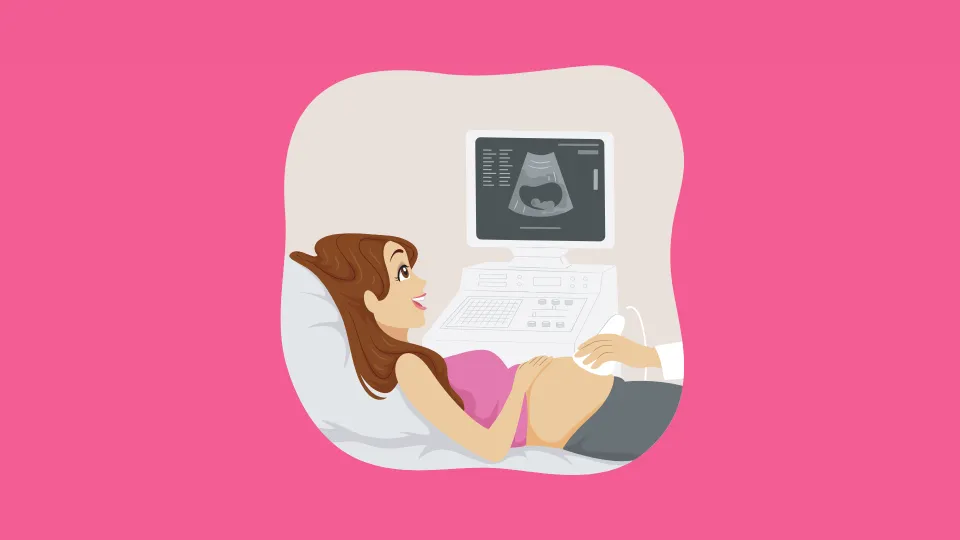
What is Prenatal Care, and Why Is It Important? Prenatal Care Vitamins.
Pregnancy is a time when women need to take extra care of themselves.
Early and regular prenatal checkups can help you have the best pregnancy possible, which will result in an easier birth for both mommy-to-be and her baby.
What Is Prenatal Care?
Women who suspect they’re pregnant should schedule a visit with their health care provider to begin prenatal care.
Prenatal visits typically include physical exams, weight checks, and urine samples-depending on the stage of pregnancy, it may also involve blood testing or imaging tests such as ultrasound examinations.
These discussions cover topics like mother’s well-being, fetal development, etc., any questions that arise from this process are addressed during these conversations.
The best way to keep your baby and yourself healthy during pregnancy is with pre-pregnancy care. This includes taking careful measurements, asking questions about what you’re experiencing emotionally as well as physically before preconception begins so that when it’s time for labor or delivery there will be no surprises! With regular prenatal care, women can:
- Reduce the risk of pregnancy complications.
Following a healthy, safe diet; getting regular exercise as directed by a health care provider, and avoiding potentially harmful substances such as lead and radiation can help reduce the risk of pregnancy complications and promote fetal health and development. Controlling pre-existing conditions, such as high blood pressure and diabetes, is critical for avoiding serious complications and their consequences.
- Reduce the fetus’ and infant’s risk for complications.
Tobacco use and alcohol consumption during pregnancy have been linked to an increased risk of Sudden Infant Death Syndrome.
Alcohol use also raises the risk of fetal alcohol spectrum disorders, which can result in a variety of issues such as abnormal facial features, a small head, poor coordination, poor memory, intellectual disability, and heart, kidney, or bone problems.
These and other long-term problems can occur even with low levels of prenatal alcohol exposure.
Starting With Pre-Pregnancy Care
A pre-pregnancy care visit is the best way to make sure you have everything under control before getting pregnant. By taking these simple steps, women can promote a healthy pregnancy and birth of their baby by doing:
- Develop a plan for their reproductive life.
- Increase their daily intake of folic acid (one of the B vitamins)
- Make sure their immunizations are up-to-date.
- Control diabetes and other medical conditions.
- Avoid smoking, drinking alcohol, and using drugs.
- Attain a healthy weight.
- Learn about their family health history and that of their partner.
- Seek help for depression, anxiety, or other mental health issues.
What are prenatal vitamins?
If you are pregnant, your doctor, OB/GYN, or midwife may recommend taking prenatal vitamins as part of your prenatal care to supplement nutrient requirements for fetal development.
Prenatal vitamins (also known as Prenatal Multivitamins) are a combination of vitamins and minerals that a woman requires before, during, and after her pregnancy for her own health and the development of her child.
In various amounts, these vitamins and minerals include folic acid (folate), calcium, iron, vitamin D, and iodine. Vitamins A, E, C, B, zinc, magnesium, and thiamine are also found in prenatal vitamins.
All of these are essential nutrient components for good dietary health.
What are the side effects of prenatal vitamins?
Prenatal vitamins have little to no side effects for most women who take them as directed by their doctor or midwife. Prenatal vitamins contain iron, which can cause constipation and nausea in some women.
You may also experience diarrhea, dark stools, a loss of appetite, and stomach upset or cramps. Discuss any side effects from taking prenatal vitamins with your OB/GYN.
Should all pregnant women take prenatal vitamins?
Proper nutrition is essential for your baby’s health, and your baby is completely reliant on you for all of his or her nutritional requirements, which include essential vitamins, supplements, and minerals for embryonic and fetal development.
If you eat a healthy diet (adequate food sources), you should be able to meet all of your growing baby’s nutritional needs (with the exception of vitamin D and folic acid); however, doctors recommend taking prenatal vitamins if you are planning to conceive or are already pregnant, for the health of your baby.
What are the different types of prenatal vitamins?
Folic acid (folate or folate supplements), calcium, iron, iodine, zinc, and vitamins A, E, and C are common ingredients in prenatal vitamins. Prenatal vitamins contain a variety of ingredients that differ depending on the product. Based on your specific needs, your doctor will recommend the appropriate type of prenatal vitamin or prenatal supplement.
- Iron: Iron is essential for the development of the placenta and fetus. Iron is also necessary for the mother to produce more red blood cells.
- Calcium and vitamin D: Calcium and vitamin D are used to help your baby’s skeleton develop.
- Folic acid: Folic acid aids in the development of your baby’s spinal cord and brain (it helps prevent neural tube defects).
- Zinc: Zinc promotes normal development in your baby and may increase birth weight. Slow growth may result from a zinc deficiency.
- Iodine: Iodine is required for proper thyroid gland development and function. Hypothyroidism in the mother or baby can be caused by an iron deficiency.
- Vitamin A: Vitamin A is required for normal eye development. A lack of vitamin A can cause night blindness.
Lil Feet has the most comprehensive selection of maternity and prenatal specialists in all of Bangalore. Contact us to book a consultation today!














